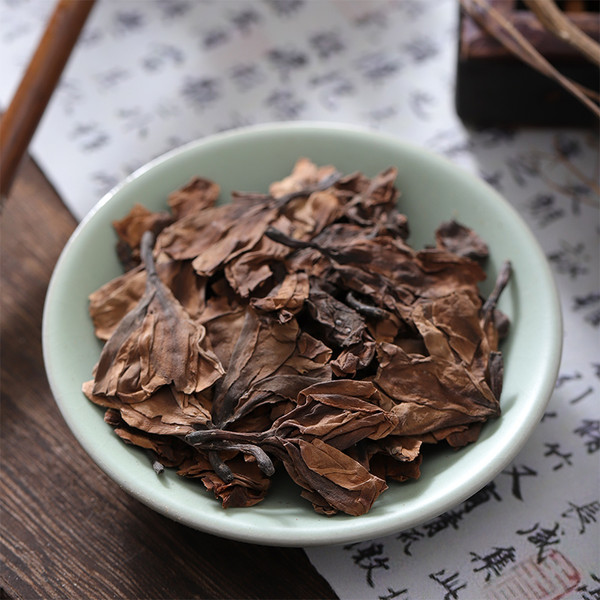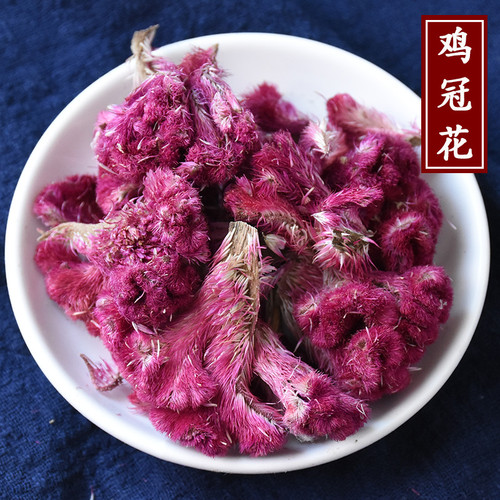Product Overview
Parts used: Dried ripe fruit
TCM category: Herbs that clear Heat and purge Fire and/or clear Summer Heat
TCM nature: Cold
TCM taste(s): Bitter
Meridian affinity: Gallbladder Heart Lung Sanjiao
Scientific name: Gardenia jasminoides
Other names: Gardenia fruit, Cape jessamine fruit, Danh-danh fruit
Use of cape jasmine fruits (Zhi Zi) in TCM
Please note that you should never self-prescribe TCM ingredients. A TCM ingredient is almost never eaten on its own but as part of a formula containing several ingredients that act together. Please consult a professional TCM practitionner, they will be best able to guide you.
Preparation: Remove stems and impurities, steam or boil slightly in water, dry. Crush before use.
Dosage: 3 - 12 grams
Main actions according to TCM*: Clears Heat and calms spirit. Drains Damp-Heat affecting the Liver and Gallbladder. Clears Heat in the Blood and stops bleeding. Anti-inflammatory.
Primary conditions or symptoms for which cape jasmine fruits may be prescribed by TCM doctors*: Restlessness Insomnia Hematuria Bloody sputum Nosebleed Uveitis Carbuncles Sores
Contraindications*: Should not be used by those who have diarrhea or those with Cold and Deficiency.
Common TCM formulas in which cape jasmine fruits are used*:
For irritability and insomnia that occurs after a prolonged fever combine cape jasmine fruits with fermented soybeans (Dan Dou Chi).
For high fevers with delirium and unconsciousness combine cape jasmine fruits with baikal skullcap roots (Huang Qin), forsythia fruits (Lian Qiao) and fermented soybeans (Dan Dou Chi).
For Heat in all the Three Burners with symptoms of irritability, dry mouth and dark urine combine cape jasmine fruits with goldthread rhizomes (Huang Lian).
For jaundice with flank pain combine cape jasmine fruits with rhubarb (Da Huang) and virgate wormwood (Yin Chen).
For Damp-Heat in the Liver and Gallbladder, gallstones and/or jaundice combine cape jasmine fruits with gold coin herb (Jin Qian Cao), virgate wormwood (Yin Chen) and bupleurum roots (Chai Hu).
For Blood-Heat, febrile illnesses, clouding of consciousness and/or exanthems combine cape jasmine fruits with woad leaves (Da Qing Ye), goldthread rhizomes (Huang Lian), red peony roots (Chi Shao), mudan peony bark (Mu Dan Pi) and bugbane rhizomes (Sheng Ma).
For Heat in the Stomach and Heart with painful obstruction of the throat, sores in the tongue, mouth and throat combine cape jasmine fruits with woad leaves (Da Qing Ye), woad roots (Ban Lan Gen), ningpo figwort roots (Xuan Shen), gypsum (Shi Gao) and goldthread rhizomes (Huang Lian).
Key TCM concepts behind cape jasmine fruits (Zhi Zi)'s properties
In Traditional Chinese Medicine (TCM), cape jasmine fruits are plants that belong to the 'Herbs that clear Heat and purge Fire and/or clear Summer Heat' category. Herbs in this category are used to clear inflammatory and infectious conditions, referred to as 'Internal Heat' in TCM. This is why most of the herbs in this category will have both antibacterial and antiviral properties. In TCM one has too much 'Heat' in their body as a result of a deficiency of 'Yin' (which is Cold in nature, see our explanation on Yin and Yang) or, more commonly, an excess of Yang (Hot in nature). Herbs that clear Heat and purge Fire treat the latter and as such tend to be Cold or Neutral in nature.
As suggested by its category cape jasmine fruits are plants that are Cold in nature. This means that cape jasmine fruits typically help people who have too much "heat" in their body. Balance between Yin and Yang is a key health concept in TCM. Those who have too much heat in their body are said to either have a Yang excess (because Yang is Hot in nature) or a Yin deficiency (Yin is Cold in Nature). Depending on your condition cape jasmine fruits can help restore a harmonious balance between Yin and Yang.
Cape jasmine fruits also taste Bitter. The so-called "five elements" theory in Chinese Medicine states that the taste of TCM ingredients is a key determinant of their action in the body. Bitter ingredients like cape jasmine fruits tend to have a cleansing action on the body by clearing heat, drying dampness and promoting elimination via urination or bowel movements.
The tastes of ingredients in TCM also determine what organs and meridians they target. As such cape jasmine fruits are thought to target the Gallbladder, the Heart, the Lung and the Sanjiao. Similar to modern medicine, in TCM the Gall Bladder stores and releases bile produced by the Liver. It also controls the emotion of decisiveness. In addition to regulating blood flow, the Heart is believed to be the store of the "spirit" which basically refers to someone's vitality. In addition to performing respiration, the Lungs are thought to be a key part of the production chain for Qi and the body fluids that nourish the body. The triple burner (Sanjiao) is a special concept in TCM with no corresponding organ in modern medicine. Its function is similar to a water wheel: body fuilds, Qi and food are transported through the San Jiao and that very movement helps our metabolism.
Use of cape jasmine fruits (Zhi Zi) as food
Cape jasmine fruits are also eaten as food.








